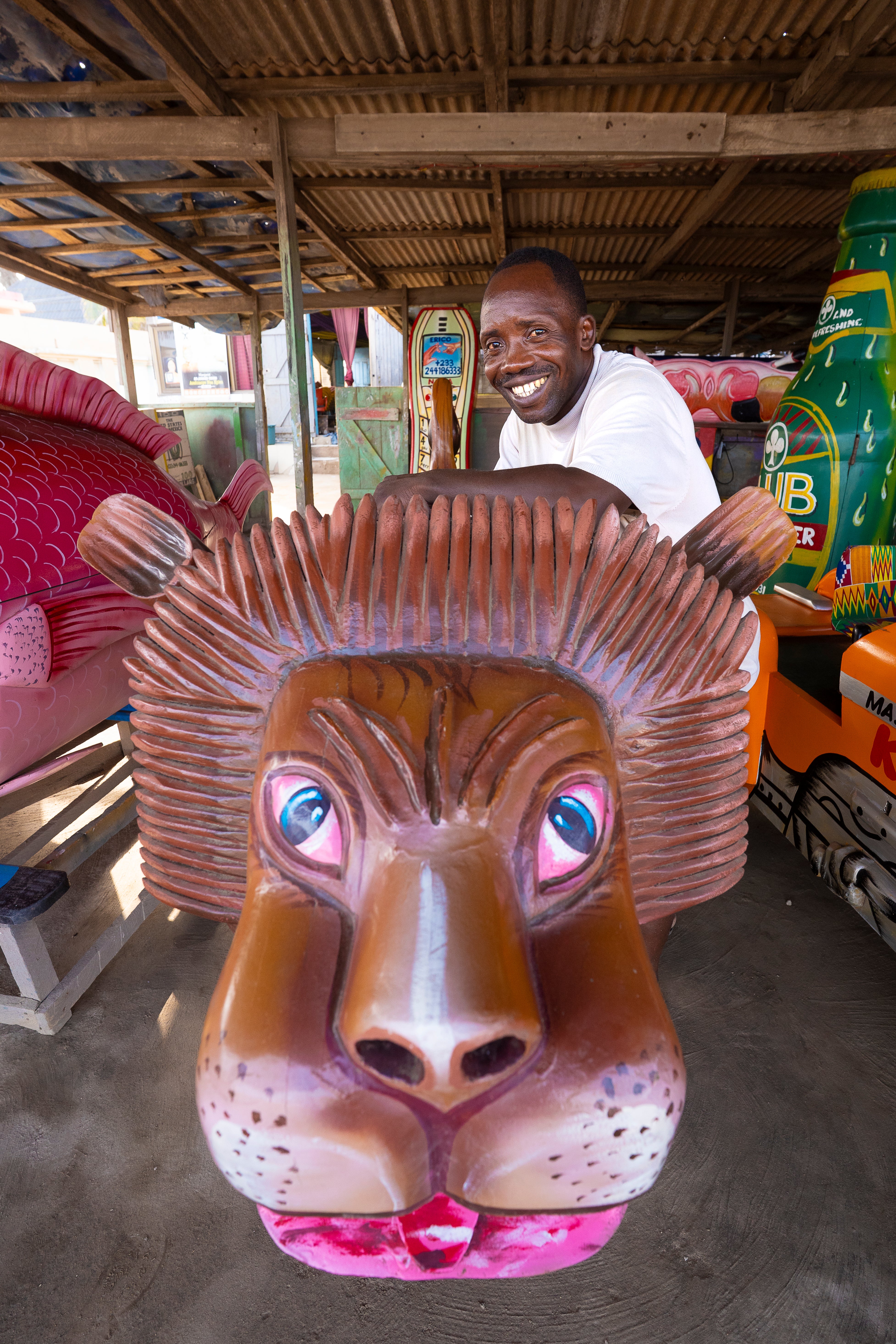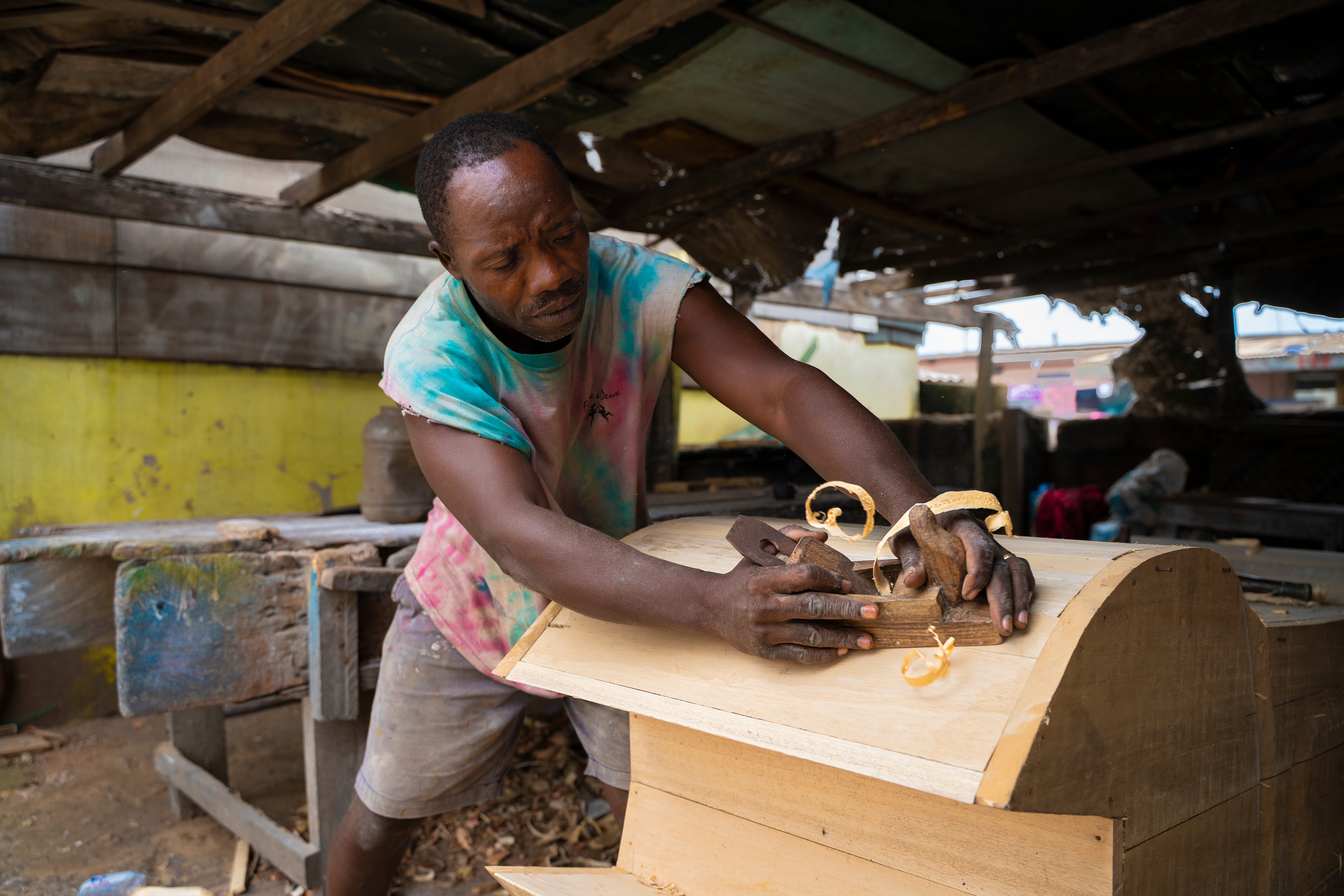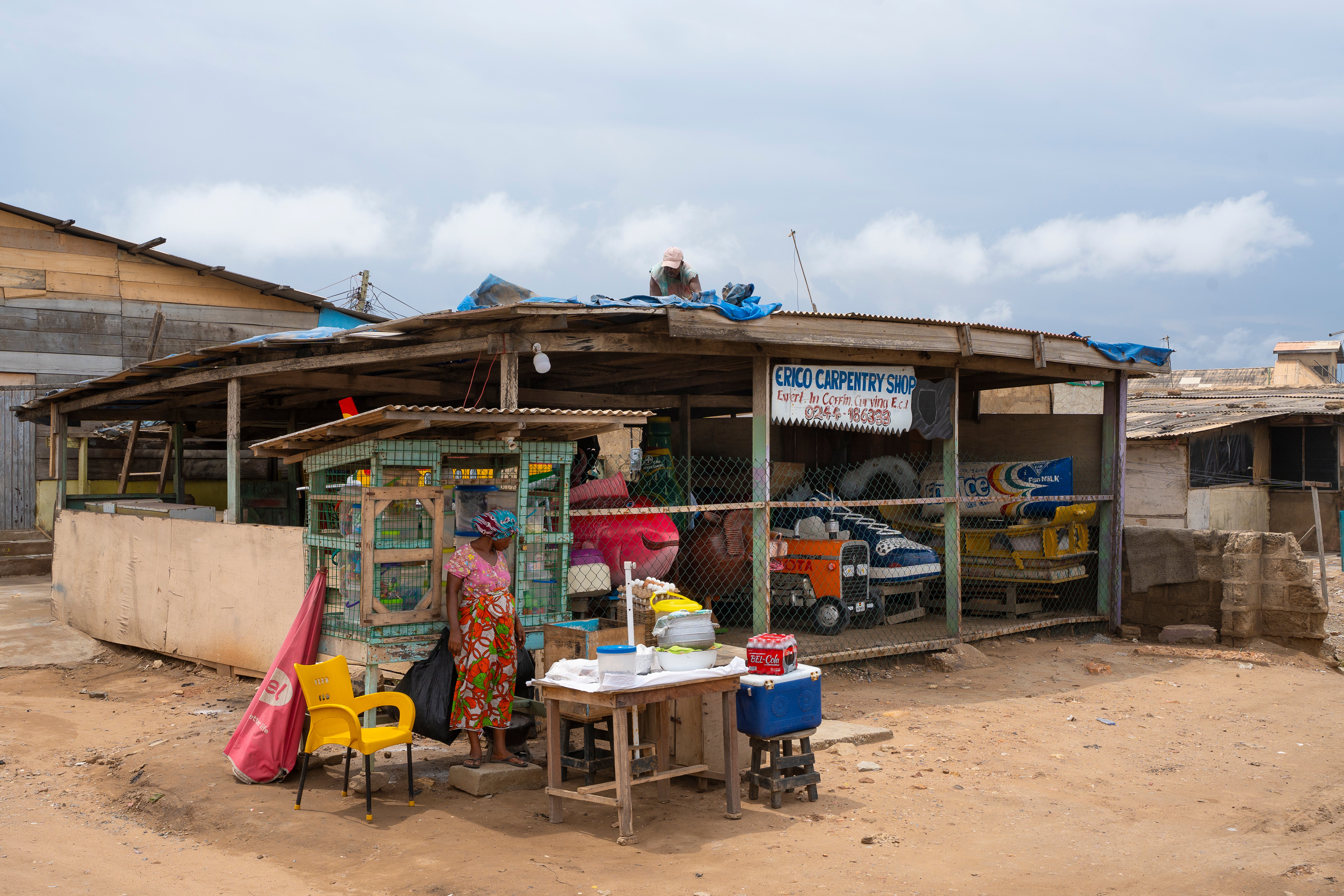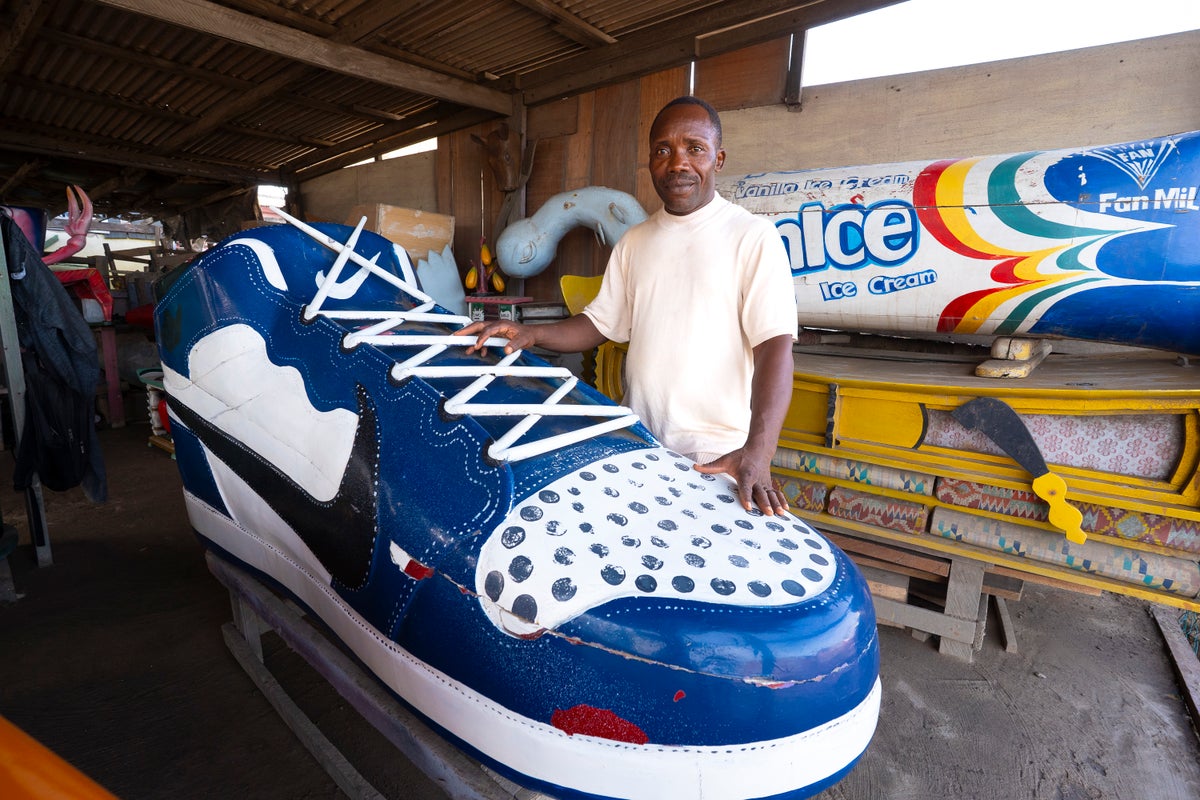It’s hard to miss the coffin shaped like an old Nokia brick phone at the entrance of the sunlit workshop on the outskirts of Accra. Here, on a busy road next to Ghana’s Atlantic coastline, Eric Kpakpo Adotey and his small team of craftsmen spend each day working in the thick humidity to bring people’s creative final wishes to life.
“Most of the time, people don’t cry when they see these ones,” Eric explained as he zigzagged between a coffin shaped like a Nike trainer and another in the form of an intricately detailed, pink fish. “They forget there’s a body in this coffin,” he added, the sounds of carpentry tools hammering away around him. “They all talk about the design, the art, the shape of it… it change[s] the atmosphere.”
Visiting a coffin maker is hardly at the top of many travellers’ bucket lists, but it should be if you visit Ghana. In this vibrant West African nation, death isn’t mourned in the sober ways you may expect. For many, it’s also a time of celebration, carried out in prolonged, colourful ceremonies full of music and dancing that can span multiple days. One of the more unique traditions adopted into Ghanaian funerary culture is the use of fantasy coffins that carry the dead into the afterlife, just like the ones Eric has crafted for the last 25 years.

Locally referred to as abebu adekai (proverbial coffins), these figurative designs have been primarily used by the Ga people, one of Ghana’s ethnic groups, since around the 1950s. They’re typically crafted to resemble a person’s trade and symbolise the work they’ll continue in the afterlife, like a cocoa bean for a cocoa farmer or a fish for a fisherman.
Painted in striking colours and finished with minuscule details, they could easily pass for impressive sculptures rather than their more solemn use. Yet, after spending weeks on the design and creation, these coffins encase the deceased just like a regular coffin before burial in the ground. In more recent years, coffin requests have also become bolder — one viral video from a funeral in Ghana in 2020 saw a person buried in a penis-shaped coffin, prompting speculation about whether the deceased was a sex worker, or a ‘wanzam’ who performed circumcisions.
Read more: Where to go on holiday in Morocco, from Marrakech to Fes
For Eric’s part, the coffin craftsman has made everything from a coffin shaped like a camera to a human-sized beer bottle. “The one that is most famous to me is the octopus,” Eric recalled about his most unique request, adding that the intricate design came with eight tentacles. “That one was… a challenge.”

Coffin making can also be big business. Some of Eric’s coffins have become collectibles, selling for over $4,000 (£2,956) to international buyers and displayed in galleries worldwide. Those destined for local burials tend to have a more modest price tag, but regardless of its destination, the team puts care and commitment into each and every coffin they work on.
Read more: How to experience Africa’s wildest coastline from the comfort of your balcony
Behind this bold creativity is also something deeper — the coffins are just one part of an elaborate funeral culture you find in Ghana, where send-offs are particularly grand affairs. News of a funeral here is usually announced through giant posters plastered on the sides of houses and walls, sharing information about the upcoming event. These posters usually include dramatic messages: “A painful exit”, read one, while another announced “What a shock!”
The theatrics also continue through the ceremonies themselves, from “professional mourners” who are paid to wail at the side of a coffin, to the viral dancing pallbearers who skilfully carry the coffin on their shoulders while performing an impressively synchronised dance routine.

From the public obituaries to the clothes people wear, Ghana’s lively funeral events carry a deeply spiritual and symbolic significance, as well as a party-like atmosphere that comes with a hefty price tag.
“People would go in for loans to organise beautiful funerals,” says lecturer and researcher Nii Ayo Solomon, whose own family recently commissioned a fantasy coffin. “My sister was buried recently,” he adds. “She was the national captain for the female national rugby team and we had to do a casket like this that looks like a rugby ball for her to be buried in.” On the last day of the festivities, “all the family comes together to settle the bills,” explained Isaac Aziawo, a guide for Intrepid Travel, which includes a visit to the fantasy coffin makers on one of its Ghana tours. “They have to get a contribution from each person to pay for the food, the drink, the coffin, and all other expenses during the funeral.”
Read more: Is there such thing as an affordable safari? How to holiday in the wild without breaking the bank
For those travelling through the country, especially on weekends, it’s impossible to miss signs of funeral celebrations in almost every town — though you may not know it at the time. Only after my recent visit to a fish market in Elmina, I discovered the seemingly impromptu party I’d been warmly welcomed to dance at had been part of a funeral service.

As well as potentially encountering a Ghanaian funeral, an increasing number of tourists are taking the trip to visit one of the country’s fantasy coffin workshops, as the unique craft gains international attention. Eric’s workshop now doubles as a gallery for curious onlookers: even foreign dignitaries have stopped by to marvel at his functional artworks. Yet despite his international acclaim, Eric doesn’t necessarily identify himself as an artist either.
“Because I’m a carpenter, definitely I’ll use one of our tools,” he said, when asked about what coffin he envisions for himself. And while the tourists wander around his creations, Eric never loses sight of the important job in front of him.
“I love what I’m doing, and I know I’m also giving support to others,” he added, as he got to work on turning grief into yet another touching tribute, this time in the shape of a spanner.
Getting there
You can meet Accra’s fantasy coffin makers on Intrepid’s Benin, Togo & Ghana Adventure, a 15-day adventure led by local guides, which includes accommodation, some meals and activities, guides and transport.
British Airways has a daily direct flight to Accra from London Heathrow starting from around £600 return.
Tamara was travelling as a guest of Intrepid Travel.
Read more: How to plan the perfect holiday around one of the world’s greatest wildlife spectacles




